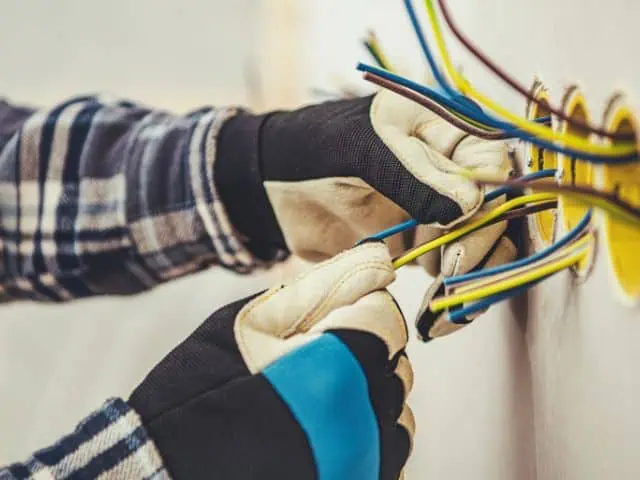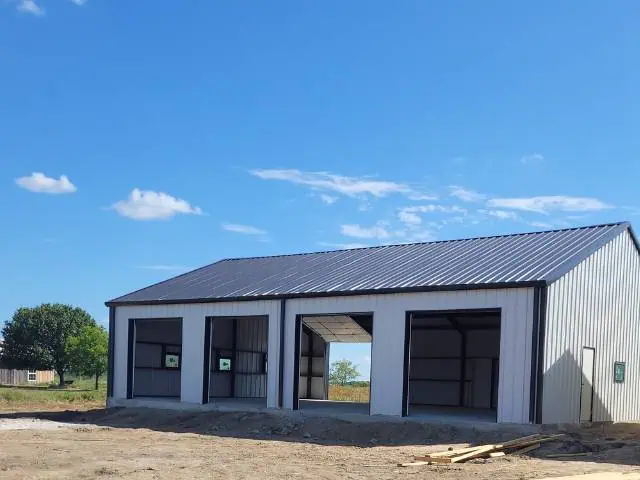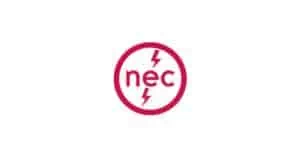Buckmasters Electric provides professional wiring services for offices, retail, restaurants, warehouses, and light industrial spaces. From electrical wiring installation during tenant finish-outs to wiring repair and electrical rewiring in older buildings, our licensed team handles permits, inspections, and close-out docs so your project moves fast and passes the first time.
TECL #24595 • Licensed & Insured
Request a Bid or Schedule a Walk-Through
Contact Buckmasters Electric Today!
Commercial Wiring Installation
Wiring installation for build outs and new layouts, delivered on schedule.
- Circuits for lighting, receptacles, and equipment
- Conduit/EMT & MC cable routing above ceilings and in walls
- Panels, subpanels, transformers, and dedicated circuits (HVAC, kitchen, servers)
- Emergency/exit lighting and egress power
- Power for POS, break rooms, conference rooms, and signage
- Coordination with low-voltage, access control, and data trades
We coordinate early with your GC and city reviewers to reduce change orders and delays.
Talk to a commercial electrician now or request a fast quote.
- Permits & inspections handled
- Licensed & insured
Electrical Rewiring & Upgrades
Modernize aging or overloaded systems with targeted electrical rewiring:
- Replace brittle/aluminum conductors and undersized circuits
- Add capacity for new equipment or higher occupancy
- Correct prior DIY or out-of-code installs
- Labeling, panel schedules, and as-built updates
A safer system reduces nuisance trips, heat buildup, and downtime, and keeps you aligned with current NEC requirements.
Wiring Repair & Troubleshooting
Fast, accurate wiring repair to keep your business running
- Tripping breakers, partial outages, and hot spots
- Damaged conductors, loose terminations, failed devices
- Fault isolation, thermal scans, and load testing
- Repair reports for landlords, insurers, and facility files
We coordinate early with your GC and city reviewers to reduce change orders and delays.
Need Emergency Help?
Contact Buckmasters Electric Today!
Industries We Serve
Our Commercial Wiring Process
- Walk-through & scope
- Written estimate with upfront pricing
- Permit & schedule
- Installation
- Inspection
- Close Out

Transparent Upfront Pricing—What Affects Cost
We don’t post generic rates that mislead. Your price reflects your specific requirements:
Scope (circuits, devices, footage, and density)
Ceiling height and access (lifts, plenum, grid)
Material spec (EMT vs. MC, device grade, fixtures)
Distance to panels/transformers and available capacity
Permit, plan review, and inspection requirements
You’ll see everything in writing before we start. No surprises.
Need Commercial Wiring Installation?
Send your plans or scope for upfront pricing and a clear schedule.
Commercial Wiring Services by Buckmasters Electric - Why Choose Us?
When you choose Buckmasters Electric, you're selecting a team led by a Texas Licensed Master Electrician who values quality, safety, and customer satisfaction. Our electrical technician follow industry best practices, ensuring that your electrical wiring is not only reliable and efficient but also safe and fully compliant with all local building codes.
Certified and Experienced Team
Compliance with NEC and OSHA Standards
Customizable and Scalable Solutions
Commitment to Safety and Reliability

What Our Clients Say
Frequently Asked Questions
Contact Us
For more information on our commercial wiring services or to schedule a consultation, contact Buckmasters Electric today.
Areas We Serve
Collin County Electrician Frisco, Texas Electrician McKinney, Texas Electrician Plano, Texas Electrician Wylie, Texas
Dallas County Garland, Texas Mesquite, Texas North Dallas, Texas Sunnyvale, Texas
Van Zandt County Edgewood, Texas Grand Saline, Texas Wills Point, Texas
Kaufman County Electrician Forney, Texas Electrician Kaufman, Texas Electrician Terrell, Texas
Rockwall County Electrician Rockwall, Texas Electrician Royse City, Texas
Upshur County Big Sandy, Texas Gilmer, Texas
Wood County Quitman Texas



